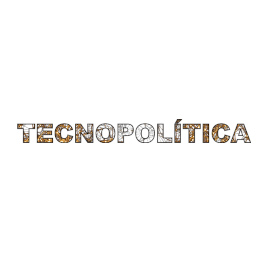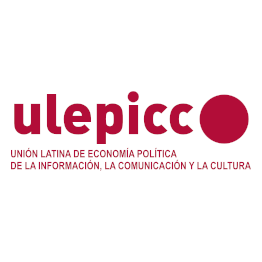|
Decades of neoliberalism in Latin America have been marked by the dismantling of public infrastructures and the extraction of common assets in favour of national and transnational corporate interests. The period has also been characterised throughout the region by the emergence of a new cycle of resistances led by organisations, struggles and subjectivities which, unlike the classic struggles of the 1970s, have been able to put in check the traditional foundations of understanding and doing politics. In our field of study, technopolitics, this has been reflected in two aspects, among others. Firstly, the domination of the private sector and control of audiovisual media by the main transnational telecommunications operators has led to a lack of channels for public visibility and representation. The media landscape this has produced is unfavourable (or barely favourable) to the population’s interests and the opening of channels for public dialogue. Secondly, in the new context of social struggles – and thanks to the extensive experience built up in the region since the 1970s in communication that is considered to belong to the people, citizens or community and is engaged with social movements, rich in experiences, commitments and reflections – empowerment processes have become easier with technology and digital culture for both protests and social aspects.
The uprising of the indigenous communities in Chiapas in 1994 was one of the first times in the world that the internet network was used as a means of protest and to support a social struggle, which was original in its rhetoric and global in its antagonistic expression. However, while the movements that support the Zapatista cause paved the way for media activism in a social conflict context, it was only years later that the massive dissemination of low-cost technology and the internet made it possible to use social media as a component of social protest. Examples of this are web pages set up to break the media siege of the mainstream media during the people’s protests in Argentina in 2001 or the Oaxaca insurgency in 2006 and the use of Facebook and other social media platforms in the “Penguins’ Revolution” student protests in Chile, the #YoSoy123 movement in Mexico and the protests in Brazil and Venezuela in 2014. We can also observe the emergence of new appropriation processes and the use of new technologies by indigenous peoples in the continent to defend their territories and natural resources. Examples of this include the digital media used by the Mapuche people in Chile, the Wiwa indigenous communities in Colombia, and the communities of the Peruvian rainforest, the Chaco Boliviano, North Cauca in Colombia and the Neuquen Province of Argentina, etc. We can also discuss the recent formation of a Cuban blogosphere which is using the digital network to attempt to reproduce and build new autonomy processes based on the values of the 1959 Revolution. These experiences, and many others, have not only strengthened forms of urban and rural community integration and social mobilisation in the continent but have also helped radically transform the forms of collective action. Gradually, step-by-step, they have started to weaken the institutional bases of the centralised, hierarchical model of the Latin American political representation system and in recent years they have inspired new transformations in the Latin American public politics landscape, with particular focus on technological sovereignty, free culture and citizen participation. Based on these premises, this publication aims to: firstly, present a critical reflection on the different scenarios and challenges that are appearing in Latin America regarding the power relationships that are produced based on new digital technologies and the social processes of which they are part; secondly, to establish a dialogue with researchers in other places who have critically analysed the use and application of technology and digital culture for the active participation of citizenship in decision-making, exchange and social solidarity processes, such as the Arab Spring, the Occupy movement in the USA, protests against the economic crisis in Europe and protests for a broader democratic arena in Hong Kong, Singapore, Taiwan and Japan, among others. We therefore invite academics and researchers to contribute to one of the topic areas discussed in this book: 2. Dissident technopolitics practices in Latin America: critical analysis and current challenges. Taking Latin American experiences as a starting point, in this second topic area we are interested in reflecting on the practices and experiences that are, autonomously and using self-management, creating other identities and social spaces on the margins of and against the neoliberal system through the use of digital technology. We are interested in the dissenting experiences in Latin America whose practices are used not only to hack and make pirate copies of hardware and software in order to make their own technologies and liberating tools, but also to hack the concept of the body, gender, maternity, sexuality, health, care, education, knowledge, nature, spirituality, etc. They are experiences in which technologies are a pretext for rethinking and collectively rebuilding on the margins of and outside the state. There is a particular emphasis on collective writing about common culture, assets and knowledge, as well as successes, failures and challenges. INFORMATION FOR AUTHORS The book will be edited by Francisco Sierra Caballero and Tommaso Gravante. Anyone who wishes to collaborate in the publication can submit their proposal by sending an abstract in English, which must be between 800 and 1500 words in length, by 1 July 2016. Authors will be notified of the proposals chosen by 1 August 2016. The full, original text should have a maximum length of 8,000 words (including bibliography, notes and tables) for theoretical texts and 6,000 words (including bibliography, notes and tables) for case studies. The full text, in UK English, should be sent by 1 November 2016. The abstracts and final texts should be written in the Times New Roman font, size 12. Line spacing: double. Alignment: justified on both sides: left margin (3 cm) / right margin (3 cm). APA style rules (Manual, 6th edition). SUBMISSION Francisco Sierra Caballero Tommaso Gravante |
| El objeto del presente volumen monográfico es aportar una mirada crítica, adecuada a la nueva biopolítica contemporánea, sobre realidades y factores estructurales que históricamente gobiernan en la era imperial de la sociedad televigilada en América Latina, contextualizando las formas de representación y el discurso público a partir de la doctrina de Guerra de Baja Intensidad (GBI) y las nuevas formas de intervención mediatizada desde Estados Unidos y los países del Norte. La llamada a trabajos originales de este volumen a editar en EDICIONES CIESPAL trata, desde la perspectiva de América Latina, las formas de guerra irregular y el uso persuasivo y propagandístico de los medios en la construcción de la esfera pública en los procesos de acoso y derribo de los gobiernos de progreso de acuerdo a los lineamientos de la doctrina de seguridad de Estados Unidos en la transformación de las culturas de injerencia del Documento de Santa Fe y la era Reagan a la nueva política hemisférica de Clinton/Obama.
Editor Dr. Francisco Sierra Caballero Plazos Envío |
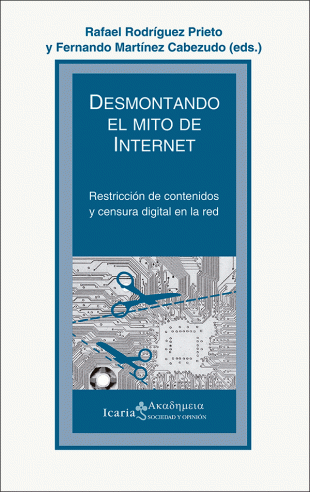
Rodríguez Prieto, Rafael & Martínez Cabezudo, Fernando (Eds.) (2016).
Barcelona: Icaria.
ISBN: 978-84-9888-713-6.
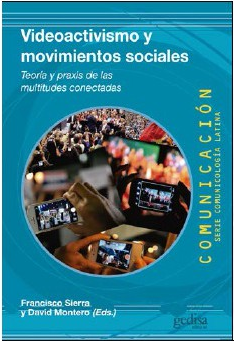
Sierra Caballero, Francisco & Montero Sánchez, David (Eds.) (2016).
Barcelona: Gedisa.
ISBN: 9788416572243.
Chasqui. Revista Latinoamericana de Comunicación abre la convocatoria de artículos para la sección del monográfico número 133, diciembre de 2016: Capitalismo Cognitivo y Comunicología. La subsunción del trabajo intelectual.Coordinador: Francisco Sierra Caballero.
Fecha límite para recepción de artículos: 30 de septiembre de 2016.
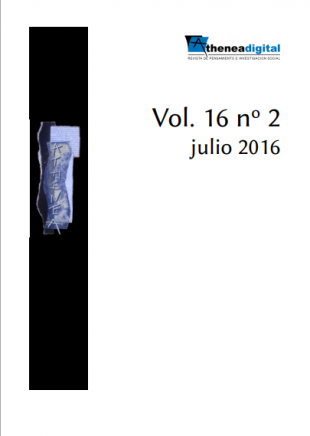
Autor: Francisco Sierra Caballero (coord.) Editorial: Ediciones CIESPAL, 2016. El libro plantea que si los procesos de acumulación por desposesión son una característica del modo contemporáneo de explotación capitalista, discutir los sistemas de propiedad intelectual y sus efectos en el conjunto de las industrias culturales y sistemas de información y conocimiento de la región se torna una prioridad estratégica que, para el caso, apunta la necesidad de repensar las formas de determinación del trabajo creativo, la jerarquización de los discursos científicos y las autorías con las que hoy se encubren desigualdades de la división internacional del trabajo intelectual entre el norte y el sur globales, o problemas concretos como la centralización y el oligopolio de las plataformas de divulgación científicas basadas en criterios típicos de un diagrama en el que se valora un tipo de rentabilidad ajena a la producción de nuevo conocimiento, o incluso la estigmatización de determinados campos dentro de las disciplinas por su baja rentabilidad económica. En este marco, la Comunicología precisa definir una agenda común sobre tales cuestiones, reconociendo la centralidad de la subsunción del trabajo intelectual. Discutir los sistemas de propiedad intelectual y sus lógicas estructurantes se torna una prioridad estratégica por la radicalización creciente del sistema de apropiación del conocimiento (como patentes y copyright) que, con otros tipos de mecanismos regulatorios, se imponen con fuerza a través de diferentes escenarios, desde las negociaciones político-económicas supranacionales hasta las agendas políticas que prefiguran la promoción de modos de vida precarios y flexibles. El texto forma parte de la colección Economía y Políticas de Comunicación, que promueve contenidos relacionados con las condiciones materiales de acceso y control social de la mediación, abordando desde un enfoque sociocrítico los retos de la sociedad de la información, aportando al conocimiento científico en un campo novedoso y en la frontera del saber de las Ciencias Sociales y las humanidades. |
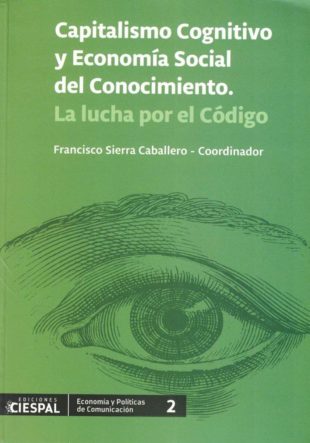
Sierra Caballero, Francisco (Coord.) (2016).
Quito: Ciespal.
ISBN: 978-9978-55-135-6.

Montero Sánchez, David (2016).
Alpha: revista de artes, letras y filosofía, 43, 93-109.
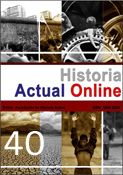
Aguiló Bonet, Antoni & Sabariego Gómez, Jesús (2016).
Historia Actual Online, 40(1), 95-111.


